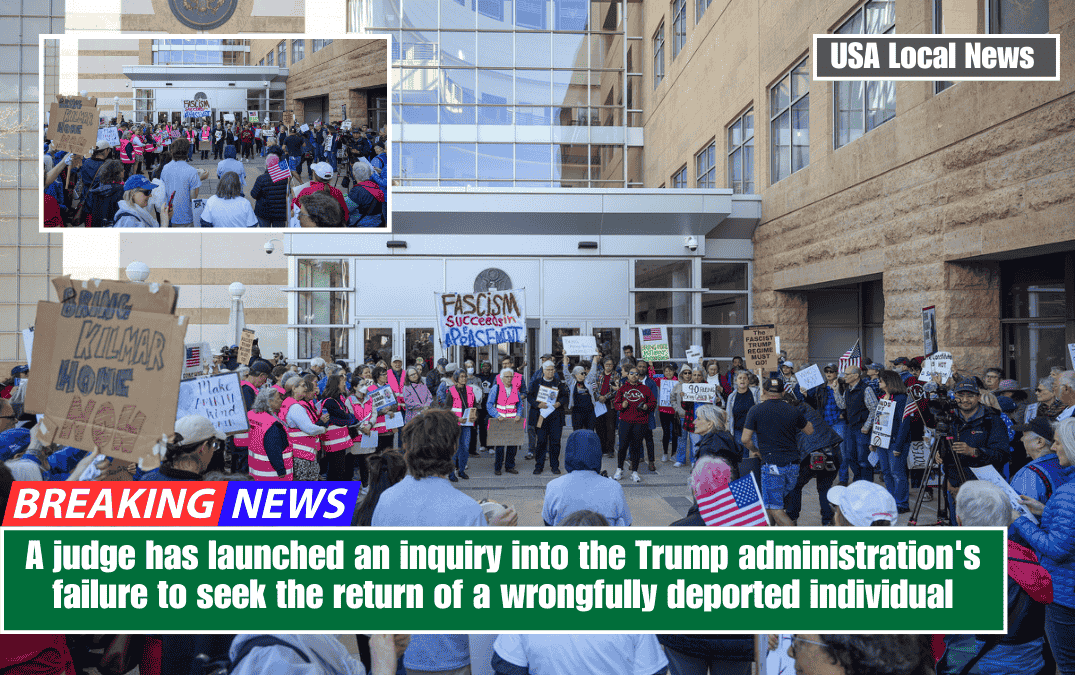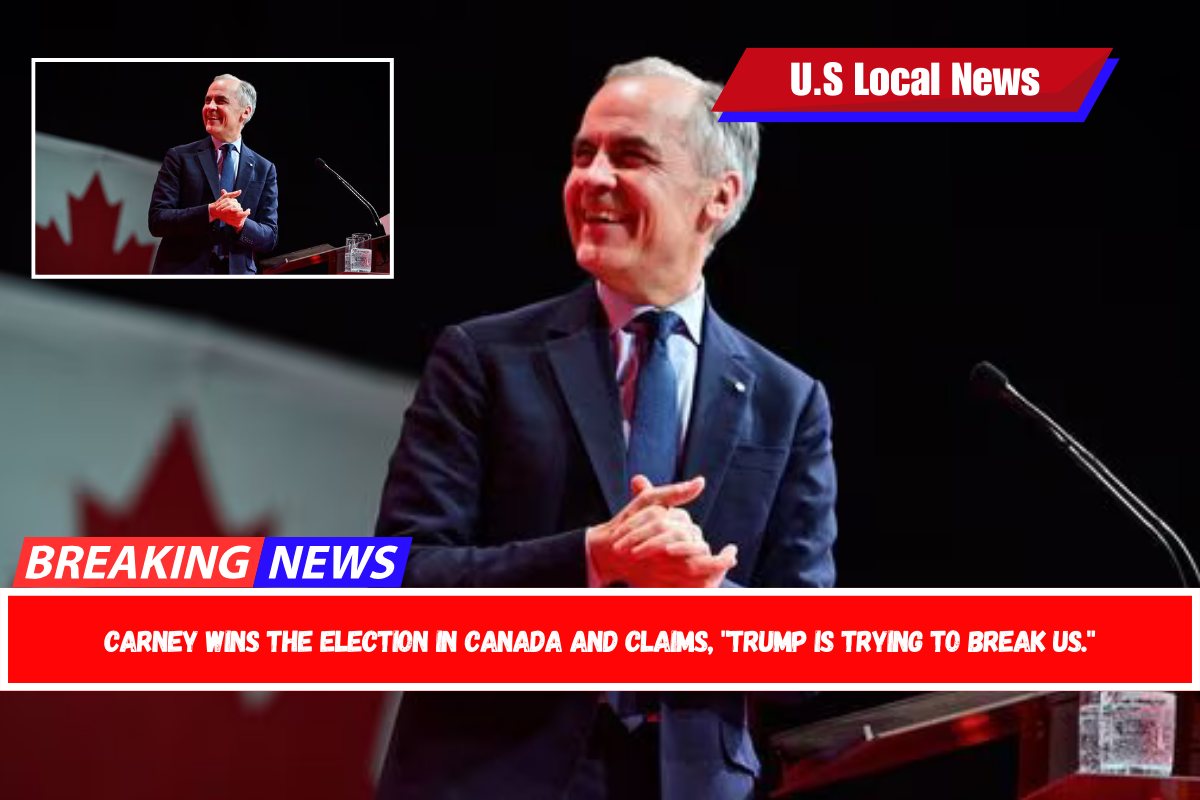Greenbelt, Maryland — A federal judge has ordered a “intense” two-week investigation into the Trump administration’s refusal to seek the return of a man who was wrongfully deported from Maryland to a notorious prison in El Salvador.
“To date, the record indicates that nothing has been done. “Nothing,” U.S. District Judge Paula Xinis said during a court hearing on Tuesday.
Xinis’ order sets up a high-stakes race that could force senior Trump administration officials to testify under oath about how they responded to court orders requiring them to facilitate the return of Kilmar Abrego Garcia to the United States. Every day that passes, the judge observed, is another day Abrego Garcia is wrongfully detained in a maximum security mega-prison.
“We are going to move. “There will be no tolerance for gamesmanship or grandstanding,” the judge stated. “There will be no business hours while we complete this. … Cancel vacations and other appointments. I am usually pretty good about things like that in my court, but not this time. So I’m expecting all hands on deck.”
Xinis’ investigation is the latest chapter in an escalating conflict between the executive and judicial branches over Abrego Garcia’s unlawful deportation last month. Xinis previously directed the administration to “facilitate” his release from El Salvador’s custody, and the Supreme Court upheld that order last week.
Immigration and homeland security officials admitted that they sent Abrego Garcia to El Salvador in error, violating a 2019 court order that prohibited the government from deporting him due to the risk of being targeted by a local gang.
However, the administration appears to have taken no concrete steps to bring him back. Trump administration officials claim they lack the authority to act since he is now under El Salvador’s jurisdiction.
Xinis called the refusal “stunning,” even though she acknowledged there is a legitimate legal debate about her own authority to order US officials to make a direct request to their Salvadoran counterparts.
In a written order granting “expedited discovery,” Xinis stated that four senior officials from the Department of Homeland Security and the Department of State must appear for depositions by April 23. Depositions are essentially out-of-court interviews in which officials must answer questions under oath from Abrego Garcia’s lawyers.
These officials include Joseph Mazzara, Immigration and Customs Enforcement’s acting general counsel, and Michael Kozak, a senior official in the State Department’s Bureau of Western Hemisphere Affairs.
Xinis’ discovery order also allows Abrego Garcia’s lawyers to take additional fact-finding steps, such as requesting relevant case documents from the government.
Drew Ensign, a Justice Department attorney, argued that President Donald Trump’s joint appearance in the Oval Office Monday with President Nayib Bukele of El Slavador demonstrated that the issue had been raised with “the highest authority” in that country and that there was no hope of getting Abrego Garcia back.
However, Xinis pointed out that Bukele’s comments were in response to a question from a journalist, not a US official. She also mocked Bukele’s dismissive statement that he could not “smuggle” Abrego Garcia back into the United States. Bukele’s response was deemed “non-responsive” by the judge in a legal matter.
The Trump administration’s reliance on that exchange, she said, highlighted the need for her to demand sworn testimony and more information.
The Justice Department is expected to raise a number of legal challenges to the depositions, including claims of confidentiality for executive branch discussions and legal advice. Ensign objected to any fact-finding by the court and requested that Xinis give the administration time to appeal her interpretation of the scope of the US government’s obligations.
However, Xinis stated that the Supreme Court had made it “very clear” that the US government was required to work to release Abrego Garcia from custody in El Salvador.
“I’m cleaving as closely as one can cleave to the Supreme Court,” the judge told Ensign. “I believe there is nothing to appeal. Now let’s get to the facts.”
Abrego Garcia, an El Salvador native, entered the United States without authorization around 2011, when he was about 16 years old. He was fleeing gang violence, according to his lawyers. Before being deported last month, he lived in Maryland with his wife and children, all of whom were citizens of the United States. He has no criminal record and worked as a sheet metal worker.
The Trump administration has claimed that he is a member of the violent Salvadoran gang MS-13, citing an immigration court case from 2019. Xinis has described the evidence of any gang affiliation as extremely flimsy: It all came down to a tip from a confidential informant and Abrego Garcia’s Chicago Bulls attire.
On Tuesday, the White House stepped up its rhetoric against Abrego Garcia. White House press secretary Karoline Leavitt accused Abrego Garcia of being “engaged in human trafficking,” despite the fact that he has not been charged with a crime and no evidence has been made public to back up that claim.
Leavitt also mocked the press coverage of the case, claiming that reporters were suggesting he should be nominated for “father of the year.”
On Tuesday, the administration also announced a new position on what would happen if Abrego Garcia was released from El Salvador’s prison and returned to the United States. Mazzara, ICE’s acting general counsel, stated in a court filing shortly before the hearing that the US government would immediately detain Abrego Garcia again.
The government would then either deport him to another country or seek to “terminate” the 2019 court order prohibiting his deportation to El Salvador.
Rina Gandhi, Abrego Garcia’s lawyer, told Xinis that the Trump administration is refusing to comply with clear court orders to facilitate her client’s return.
“The government has not even unambiguously requested his return,” Gandhi said, noting that the United States frequently makes such requests in immigration cases. “The government routinely seeks return by taking low-level actions outside the United States that do not implicate foreign policy.”















